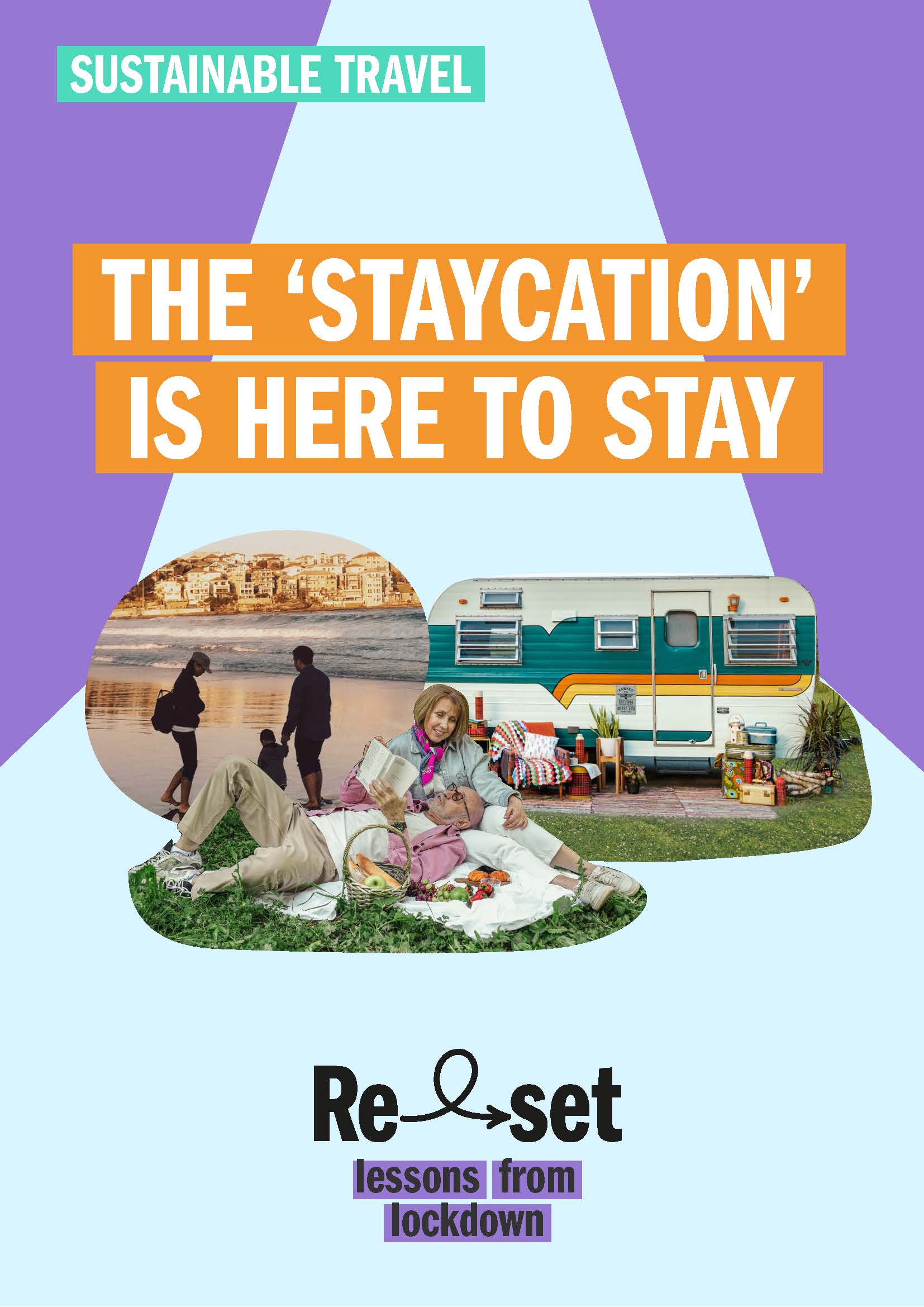According to industry research, looking at 16 global holiday hotspots, an average of 76% of all holiday bookings in 2021 were for so-called ‘staycations’ (which can mean holidaying either at or near to your home, or in your own region or country); an 18% increase on the previous year.
“There are many things that are good for our wellbeing that can be found closer to home: taking quality time out to connect with our loved ones, spending time outside in nature and taking the time to be mindful of the everyday beauty around us. All of these things can be good for the wellbeing of people and the planet.”
– Florence Scialom, Network of Wellbeing
Holidays usually offer a chance to pause, but those that chose to holiday closer to
home found themselves reflecting on the fundamentals of travel and tourism. Staycations have challenged the dominant cultural notion of what a holiday is, why it is needed and who it benefits.

This story is part of the Reset series – a collection of short downloadable stories that look in more detail at overconsumption and unecessary travel. They consider some of the key messages and solutions that have become apparent during the pandemic that could help us make the rapid transition to a more sustainable future.
This guide has been made possible by the support of ClimateWorks Foundation.
 Holidays are sacred for many, and have long
Holidays are sacred for many, and have long